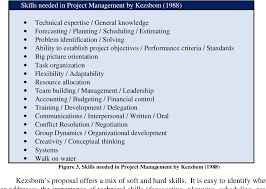
The shift to remote work consulting has created several challenges and opportunities for professionals in the field. This article will discuss the benefits and drawbacks of this new method of working. We also address the key areas of expertise needed for this type consultant. We'll also look at the challenges and rewards of working from home.
Remote workers can expect changes in the work environment
The growing popularity of remote work is driving changes in the working environment. This trend offers many benefits to both employees and businesses. For instance, it allows companies to access a larger talent pool and increase productivity. Twitter recently credited this shift as the reason why its workforce is more diverse. According to Twitter, Black representation has increased three times and Latino recruitment has increased 50 percent.
Remote work can have positive effects for women. Women who work remotely can have more flexibility with their hours and can commute less by being able to avoid the physical co-location of coworkers. Remote work can increase the gender gap. This trend is more evident in professions and industries where women are not represented.
Remote work consulting: Benefits
Working remotely can help you cut down on costs and streamline the business. There are fewer expenses associated with working from home, such as less office space, energy and electronics. Also, there is less maintenance and cleaning required. This is a great way to start a consulting career.

Remote working can help companies cut down on their travel expenses. This saves money and allows you to use your money elsewhere. Organizations don't have to pay for office space and facilities, and they save on fuel and energy costs. They also reduce greenhouse gases emissions.
Consulting remotely: The challenges
Working remotely can present unique challenges. It is possible for team members to have different levels of English proficiency and work cultures. It can be difficult to maintain consistency. It is essential to create policies and procedures that allow employees to be paid for their time. If you expect your employees to work uninterrupted, it is important to be able to give breaks to them and plan for their vacations.
Remote workers also face issues of communication. It can be difficult for remote workers not to communicate effectively, as they do no have the benefit overheard conversations or a cubicle wall. This lack of context causes them to feel out of sync, making it crucial that they communicate regularly. Make sure to clear any misunderstandings, and be open to discussing them when necessary.
Expertise areas for remote workers
You should be looking for a professional who can help you with remote work. Remote work relies heavily on the ability to connect with others. These are three areas of expertise that remote consultants need to have.
Policies – A remote work consultant can help create policies for your company that will empower remote workers. They can assist you in creating rules for synchronous communication as well as recommending tools that will make communication easier. They also have a good understanding of the legal requirements for working remotely.

Cost of hiring a remote work consultant
You need to understand the cost of hiring a remote consultant to assist you with your project. Remote work consultants are significantly less expensive than hiring employees. Sometimes, it is possible to save up to 52%. There are many things you should keep in mind.
One thing to keep in mind is that integration costs are high, especially if the tasks are firm-specific. Next, consider the cost of hiring, screening, and monitoring. You can decide whether this is worthwhile for your business.
FAQ
How can I find clients for my consulting business?
First, find a subject you're passionate about. It could be anything from social media to public relations, but there must be something you feel strongly about. If this is the case, it may be worth starting small by focusing on a niche market such web design. Once you have discovered the niche, understand what it does. What problems does the solution solve? Why should people use it? How can you help them?
You can also approach businesses directly.
If all else fails, why not offer your services at free events like networking evenings and conferences? You'll get to know many potential clients without spending money advertising.
What are the different types of jobs available for consultants?
You will need to be able to understand business strategy and operations if you want to work as a consultant. It is important to understand the workings of businesses and how they fit into society.
Being a consultant requires great communication skills and the ability think critically.
Consultants need to be flexible as they might be assigned different tasks at different times. They must be able and willing to adapt quickly to changes in direction.
They must be willing to travel for their clients. This kind of work can take them around the world.
They should also be able manage stress and pressure. Sometimes consultants are required to meet tight deadlines.
As a consultant you might work long hours. This means that you may not always get paid overtime rates.
Do I have to pay tax on consulting income
Yes. Taxes will be charged on consulting profits. The amount depends on how much you earn per year.
If you are self-employed, expenses can be claimed on top of your salary. These expenses include rent, childcare and food.
However, you can't deduct interest payments for loans, vehicle depreciation or the cost to purchase equipment.
Only 25% of your expenses can be claimed back if you make less than PS10,000 annually.
But even if you're earning more than this threshold, you might still be taxed depending on whether you're classed as a contractor or employee.
Employers are taxed via PAYE (pay as your earn), and contractors through VAT.
What skills is required to consult?
As a consultant, you should have both strong interpersonal skills and analytical skills. This is because you could be asked questions or not know what you are doing. You will need to learn how you manage people and solve problems quickly.
Communication skills are essential. Most clients expect an answer within 24hrs. They assume that you won't respond if they don't hear from them within 24 hours. It's important, therefore, to always keep them informed and ensure they understand what is going on.
Can you run a business consulting from your home?
Absolutely! This is something that many consultants do already.
Most freelancers work remotely using tools like Skype, Slack, Trello, Basecamp, and Dropbox. They often create their own office space so they don't miss out on company perks.
Freelancers may prefer to work in libraries or cafes rather than in traditional offices.
Some choose to work remotely because they are surrounded by their family.
Of course, working from home has its pros and cons. However, if you love what you do, it is worth considering.
Statistics
- 67% of consultants start their consulting businesses after quitting their jobs, while 33% start while they're still at their jobs. (consultingsuccess.com)
- Over 62% of consultants were dissatisfied with their former jobs before starting their consulting business. (consultingsuccess.com)
- According to statistics from the ONS, the UK has around 300,000 consultants, of which around 63,000 professionals work as management consultants. (consultancy.uk)
- On average, your program increases the sales team's performance by 33%. (consultingsuccess.com)
- According to IBISWorld, revenues in the consulting industry will exceed $261 billion in 2020. (nerdwallet.com)
External Links
How To
What's a typical day like for a Consultant?
Depending on what type of work you do, your typical day may vary. You'll spend your time researching new ideas and meeting clients.
Meetings are a common way to discuss problems and issues with clients. These meetings can be done over the phone or via email.
Sometimes, you may be asked to create proposals. These are documents that outline your ideas and plans for clients. You'll need to discuss your proposals with a mentor, colleague, or friend before you present them.
After all the preparation, you'll need to start creating content. You could write articles, design websites, edit photos or conduct interviews.
Depending on your project's scope, it may be necessary to do research to get relevant statistics. This could include finding out how many customers your company has and whether they purchase more than one product.
Once you have all the information needed, it is time for clients to see your findings. You can either present your findings in writing or orally.
You must also follow up with clients following the initial consultation. You can call clients to ask how they are doing or send emails asking for confirmation that your proposal was received.
Although it takes time, this process is worth it. It's also important to keep your eyes on the prize and maintain good relations with clients.